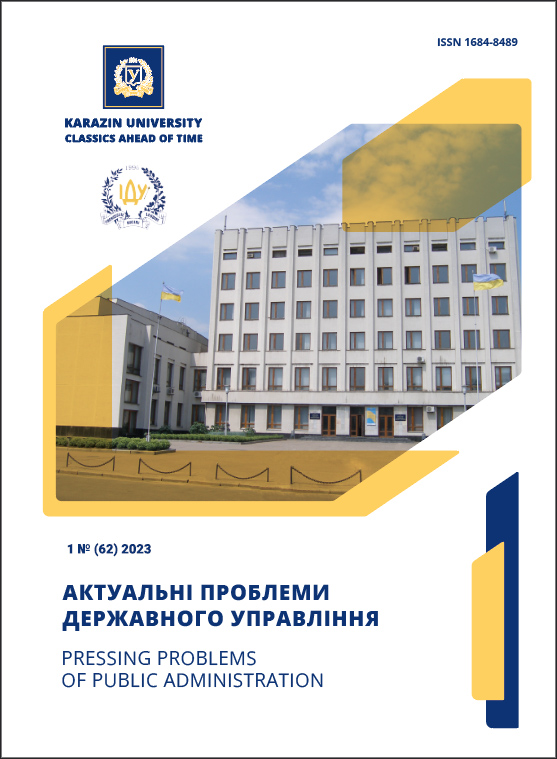Національне правове регулювання цифрової економіки і інформаційних платформ
Анотація
Стаття є логічним продовженням циклу статей авторів щодо публічного
регулювання інформаційних платформ і платформної економіки. Метою цієї статті є стисле узагальнення багатого міжнародного досвіду національного правового регулювання цифрової економіки і інформаційних платформ та виокремлення відповідних моделей такого регулювання. Стаття продовжує триваючу широку експертну і політичну дискусію щодо того, що, як і кого регулювати у новому платформному середовищі, учасниками якого є або скоро будуть майже усі люди. На основі тривалого аналізу законодавства зарубіжних юрисдикцій стаття виокремлює і роз’яснює на прикладах три основні моделі правового регулювання цифрової економіки: модель законодавчого регулювання цифрової економіки, загальнонаціональна стратегічна
модель і регіональна стратегічна модель. Робиться висновок про те, що в Україні нині вбачаються риси, які значною мірою вказують на відповідність першої моделі. Така модель може включати створення спеціального законодавства, спрямованого на розвиток цифрового
сектору, стимулювання інновацій та підтримку стартапів, однак Україна вже почала відчувати обмеження цієї моделі, оскільки цифрова економіка розвиватиметься швидше, ніж уряд і законодавці встигатимуть адаптувати систему законів до останніх змін, у результаті чого утворюються прогалини в регулюванні.
Завантаження
Посилання
Australia Digital Economy Strategy 2030. (2022). Kanberra. URL: https://www.industry.gov.au/science-technology-and-innovation/technology
Digital Economy Act. (2017). URL: https://www.legislation.gov.uk/ukpga/2017/30/contents
Dunayev, I., Kovalenko, M. (2022). New traces of regulation of information platforms and a platform-based economy for the new public good. Pressing Problems of Public Administration, 2 (61), 6–24. URL: https://periodicals.karazin.ua/apdu/article/view/21840 DOI: https://doi.org/10.26565/ 1684-8489-2022-2-01 [in Ukrainian].
Dziundziuk, V., Dziundziuk, B. (2022). Public administration using blockchain technology and platforms: new opportunities. Pressing Problems of Public Administration, no. 2 (61), 104–115. URL: https://periodicals.karazin.ua/apdu/article/view/21848/20248 DOI: https://doi.org/10.26565/1684-8489-2022-2-07 [in Ukrainian].
Electronic Transactions Act 2010 (Current version as at 04 Oct 2023) / Singapore Statutes Online. URL: https://sso.agc.gov.sg/Act/ETA2010
Étude SOC2050. URL: https://luxstrategie.gouvernement.lu/fr/publicationsbis/soc2050.html
European Commission. (2020). The Digital Services Act: ensuring a safe and accountable online environment’ (European Commission, 2020). URL: https://ec.europa.eu/info/strategy/priorities-2019-2024/europe-fit-digital-age/digital-services-act-ensuring-safe-and-accountable-online-environment_en
Financial Technologies in India – Powering the Digital Economy. (2018). KPMG, Nasscom. London: KPMG. URL: https://assets.kpmg.com/content/dam/kpmg/in/pdf/2018/09/Fintech_2018.pdf
Ingram, G., McArthur, J., Vora, P. (2022). How can digital public technologies accelerate progress on the Sustainable Development Goals? Brookings Global Working Paper #174. Washington. DC: Brookings Center for Sustainable Development.
Made in China 2025: backgrounder. (2018). URL: https://isdp.eu/content/uploads/2018/06/Made-in-China-Backgrounder.pdf
On the National Strategy for the Development of the Information Society “Digital Moldova 2020”: Resolution of the Government of the Republic of Moldova No. 857 dated 31.10.2013.
Proposal for a Regulation of the European Parliament and of the Council on the Single Market for Digital Services (Digital Services Act) and amending Directive 2000/31/EC, doc. COM (2020). 825 final, 15 December 2020.
Semenchenko, A., Oleksiuk, L. (2022). Ukraine towards the european digital market: the status and tools for implementing the european digital economy and society index. Pressing Problems of Public Administration, no. 2 (61), 129–144. URL: https://periodicals.karazin.ua/apdu/article/view/21850/20250 DOI: https://doi.org/10.26565/1684-8489-2022-2-09 [in Ukrainian].
Shivkumar, G. (2021). How to bring digital inclusion to the people who need it most. World Economic Forum. URL: https://www.weforum.org/agenda/2021/08/4-reasons-you-should-care-about-digital-public-infrastructure/
Smart Cities Plan; Australian Government. (2016). Canberra. URL: https://www.infrastructure.gov.au/sites/default/files/migrated/cities/smart-cities/plan/files/Smart_Cities_Plan.pdf
Tillemann, T. (2021). How digital systems will transform the future of money and development; Kharas, Homi, John W. McArthur, and Izumi Ohno (Eds.), Breakthroughs: The Promise of Frontier Technologies for Sustainable Development. Brookings Institution Press.
Turillazzi, A., Taddeo, M., Floridi, L., Casolari, F. (2023). The digital services act: an analysis of its ethical, legal, and social implications. Law, Innovation and Technology, no. 15:1, 83–106.
DOI: https://doi.org/10.1080/17579961.2023.2184136
Vanberg, A.D. (2023). Coordinating digital regulation in the UK: is the digital regulation cooperation forum (DRCF) up to the task? International Review of Law, Computers & Technology, no. 37:2, 128–146. DOI: https://doi.org/10.1080/13600869.2023.2192566
World development indicators database. (2022). WorldBank, 2022. URL: http://databank.worldbank.org/data/reports.aspx?source=world-development-indicators.

